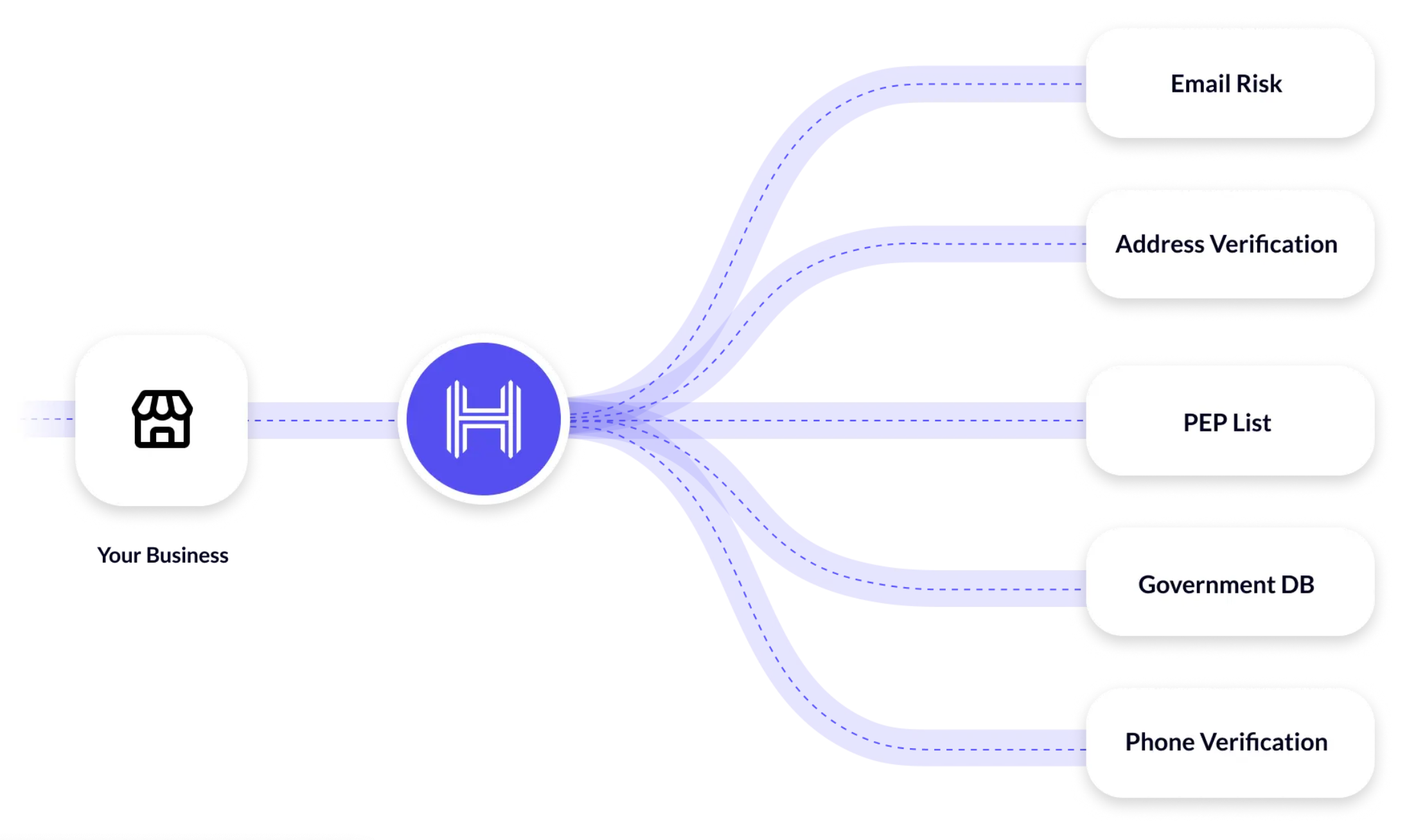With the rise in online scams and identity theft, businesses need to ensure that the email addresses they are contacting belong to legitimate individuals.
This is where Email Verification comes into play – a process that empowers an email marketer to verify the authenticity of an email address. The tool ensures that the email address provided is valid and belongs to a real person, allowing businesses to confidently communicate with their customers without fear of fraud or errors.
What is Email Verification?
Email Verification is the process of confirming the validity and deliverability of an email address. It involves checking if an email address exists, is active, and can receive messages. This verification process helps to ensure that businesses can effectively reach out to their customers, minimizing the risk of sending emails to non-existent or invalid email addresses. It also ensures that your emails don’t end up in the spam folder, increasing the chances of them being read by your target audience.
Suppose you have a large email database filled with customer information. And you need to send out a promotional email blast for an upcoming product launch. Without Email Verification, you run the risk of sending emails to addresses that no longer exist or invalid addresses, resulting in high bounce rates and damaged sender reputation.
With Email Verification, you can verify each email address on your email lists before sending out any communication. This helps to maintain a clean and updated database and email list, maximizing the chances of reaching real customers with valid email addresses. Coupled with effective Email Design, it ensures your messages reach and engage real customers.
How Does Email Verification Work?
Email Verification utilizes a combination of algorithms and database checks to verify an email address. These algorithms are designed to check the syntax, format, and domain of an email address for any potential errors or discrepancies. The process also involves cross-checking with existing databases to ensure that the email address is currently active and can receive messages.
Methods to Verify Email Addresses
Based on the level of verification required, email verification tools use different verification methods to ensure that the email belongs to a legitimate user. These include:
Disposable Email Detection
Temporary or disposable addresses are low quality email addresses that are commonly used for activities such as signing up for free trials or promotions. They are created by genuine users in lieu of their primary address. While being valid and correct email addresses, these email addresses have a limited lifespan. They are not designed to receive long-term communication. Email Verification can detect these disposable email or temporary addresses beforehand, allowing businesses to avoid sending messages to them.
SMTP Verification
Simple Mail Transfer Protocol (SMTP) is used to determine whether an email address exists and the email server can receive messages. Email Verification sends a test message to the email address, and if it is successfully delivered, the address is marked as valid. If the email is not delivered, it is marked as an invalid address.
Domain Validation
Email Verification also checks the domain of an email address to ensure that it exists and is currently active to receive emails. If the domain does not exist, the email address is marked as invalid. For example, if an email address ends with “@fakecompany.com,” the email domain “fakecompany.com” would be checked for validity.
Real-time API List Verification
Real-time API verification integrates Email Verification directly into the sign-up or registration process, allowing to verify emails immediately as they are entered into the email list. This method is highly accurate and efficient, as it eliminates the need for a separate verification step.
Importance of Email Verification
Email verification is crucial for businesses and organizations that rely on email communication to interact with their customers or clients. Here are a few reasons why leveraging email verification is important:
For Businesses:
- Reduced fraud and account takeovers: By verifying the identities of users through their email addresses, businesses can prevent fraudsters from creating a fake account or taking over existing ones and enhance fraud prevention.
- Faster onboarding and improved user experience: By using API real-time verification, businesses can ensure that legitimate customers are able to sign up or register quickly and easily, without the hassle of a separate verification step.
- Compliance with KYC/AML regulations: Know Your Customer (KYC) and Anti-Money Laundering (AML) regulations require businesses to verify the identities of their customers. Email verification provides a simple and effective way to meet these requirements.
- Increased profitability and operational efficiency: By ensuring fraud prevention and ensuring the accuracy of customer email data, businesses can save time and money on costly manual verification processes.
For Individuals:
- Safer online interactions and transactions: Individual users can be more confident in the security of their online accounts and interactions when businesses use email verification to verify their identities.
- Reduced risk of spam and phishing attacks: Email verification can help prevent spam and phishing attacks, as businesses can verify the legitimacy of email addresses before sending important information or sensitive data.
- Enhanced trust and reliability of online services: When businesses use email verification, it adds an extra layer of security and trust for individuals using their services.
Challenges of Email Verification Services
Despite its many benefits, email verification also comes with its own set of challenges. These can include:
- False positives: Sometimes, legitimate email addresses may be flagged as invalid emails or risky emails by email verification services. This can lead to delays in onboarding, lower email marketing effectiveness, or even the loss of potential customers.
- Inaccurate data: Email verification tool relies on third-party databases and algorithms, which may not always have accurate information. This can result in incorrect verification results and possible customer frustration.
- Cost: While email verification can save businesses money in the long run, there is a cost associated with using these services for verifying email addresses frequently. This may not be feasible for some smaller businesses or organizations.
- Technical limitations: Email verification service relies on accurate and up-to-date databases, which may not always be available. In addition, technical issues such as server downtime or slow response times can hinder the effectiveness of email verification services.
Thus, verifying emails alone isn’t a foolproof method for verifying identities. They need to implement a more comprehensive digital identity verification solution for added layers of verification. This includes methods such as phone verification, document verification, biometric authentication, and liveness checks. By using multiple verification methods, businesses can ensure a higher level of accuracy and security in verifying identities.
Best Practices for Secure Email Verification
To get the most out of email identity verification, here are some best practices that businesses should follow:
Keep data secure and comply with privacy regulations
Businesses should ensure that the data being collected and verified through email verification services is secure and in compliance with privacy regulations such as GDPR or CCPA. This includes obtaining consent from customers before verifying their email address.
Use multiple verification methods
As mentioned earlier, using multiple verification methods can greatly improve the accuracy and security of identity verification. By incorporating phone verification, document verification, and biometric authentication, businesses can ensure that their customers’ identities are being verified effectively.
Regularly update and clean databases
To ensure the accuracy of email verification services, it’s important for businesses to regularly update and clean their databases. This includes removing inactive or invalid email addresses from their existing list to maintain a high level of accuracy in verifying identities and reducing the email bounce rate.
Choose a reliable email verification provider
It’s important for businesses to choose reliable and reputable verification email service providers such as HyperVerge for their identity verification needs. This ensures that the verification process is accurate, secure, and compliant with privacy regulations.
Read more: How to choose the right identity verification solution
Conclusion
Email verification is a crucial step in verifying identities and ensuring the security of online transactions. However, implementing email verification alone is not enough. Businesses must have a comprehensive identity verification system in place which includes multiple verification methods that can be tailored to their specific needs. This not only improves the accuracy of identity verification but also provides a higher level of security for both businesses and customers.

HyperVerge’s solutions for identity verification offer a comprehensive solution that includes email identity verification along with other methods such as phone verification, document verification, and biometric authentication.This ensures accurate and secure identity verification for businesses of all sizes. So, don’t wait any longer – leverage the power of HyperVerge’s identity verification platform to safeguard your business and customers’ identities today! Sign up here.





